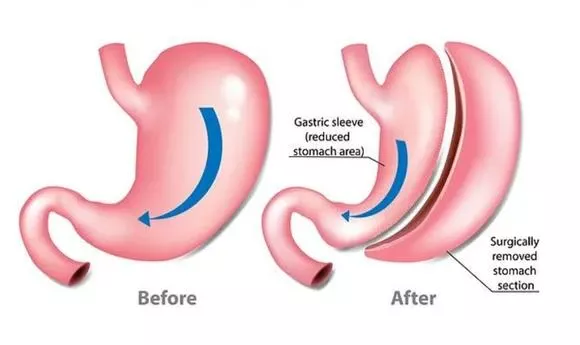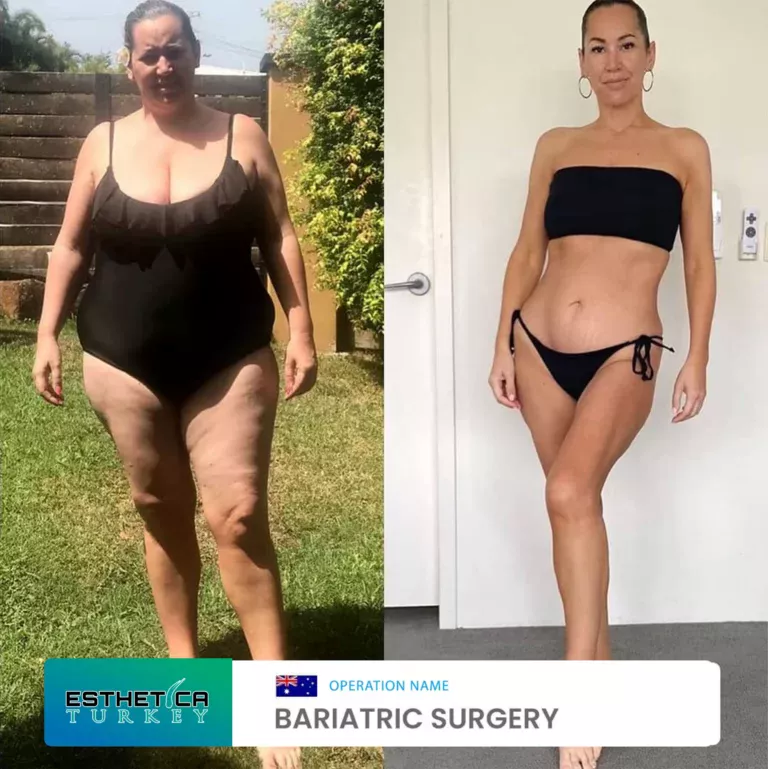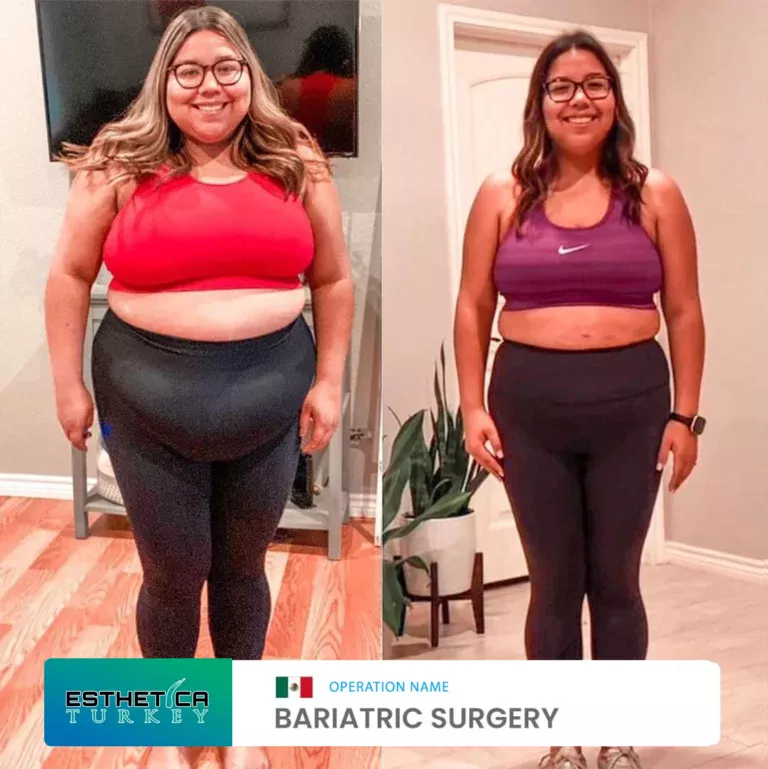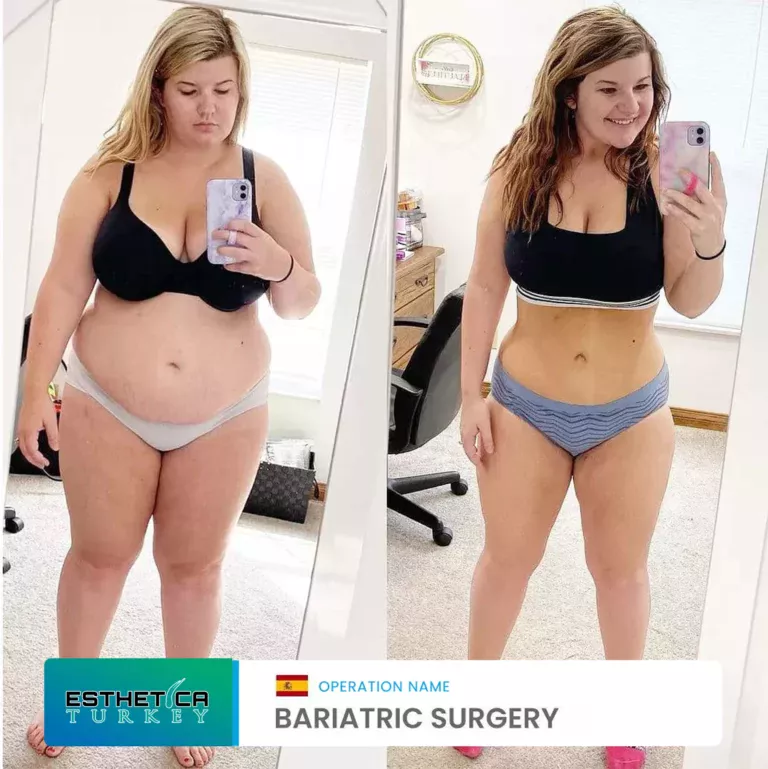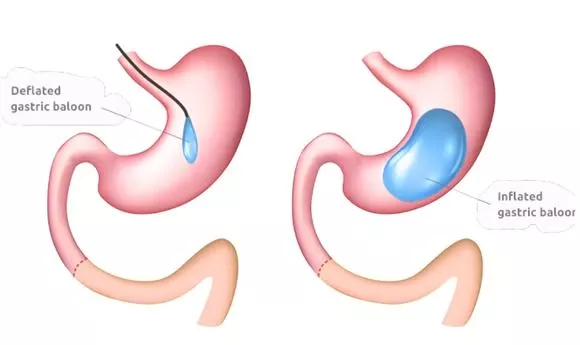A Transformative Weight Loss Procedure
Welcome to our clinic’s website, where we aim to provide comprehensive information about gastric sleeve surgery in Turkey. This article will delve into what gastric sleeve entails, the different types available, and what patients can expect before, during, and after the operation. If you’re considering gastric sleeve surgery as a viable option for weight loss, read on to learn more.
What is Gastric Sleeve?
Gastric sleeve, also known as sleeve gastrectomy, is a surgical procedure that helps individuals struggling with obesity achieve significant weight loss. It involves removing a large portion of the stomach, leaving a smaller, sleeve-shaped pouch. This reduction in stomach size restricts the amount of food that can be consumed, leading to reduced calorie intake and subsequent weight loss.
Types of Gastric Sleeve:
1. Traditional Gastric Sleeve:
This is the most common type of gastric sleeve surgery. During the procedure, a significant portion of the stomach is permanently removed, leaving behind a sleeve-shaped tube. The smaller stomach pouch reduces hunger and promotes earlier satiety, aiding in weight loss.
2. Laparoscopic Gastric Sleeve:
Laparoscopic techniques involve making small incisions in the abdomen and using specialized instruments and a camera to perform the surgery. This minimally invasive approach offers several benefits, including smaller scars, reduced post-operative pain, shorter recovery time, and lower risk of complications.
Before the Operation:
Prior to undergoing gastric sleeve surgery, patients undergo a thorough evaluation. This typically includes a detailed medical history assessment, physical examinations, laboratory tests, and consultations with the healthcare team. It’s important to discuss any existing medical conditions, medications, and allergies to ensure the procedure is safe and tailored to your specific needs.
During the Operation:
Gastric sleeve surgery is typically performed under general anesthesia. Using laparoscopic techniques, the surgeon makes small incisions and inserts instruments to remove a large portion of the stomach, leaving behind the sleeve-shaped pouch. The surgery usually takes a few hours, depending on the individual case and the surgeon’s expertise.
After the Operation:
Following gastric sleeve surgery, patients will need to stay in the hospital for a few days to monitor their recovery and manage any potential complications. The initial recovery period involves a transition to a liquid diet, followed by a gradual reintroduction of soft foods and then solid foods. Regular follow-up appointments with the medical team are crucial for monitoring progress, adjusting dietary recommendations, and providing ongoing support.
Frequently Asked Questions about Gastric Sleeve:
1. Is gastric sleeve surgery a safe procedure?
Answer: Gastric sleeve surgery is generally considered safe, but it carries some risks and potential complications. Your medical team will evaluate your eligibility and provide personalized advice.
2. How much weight can I expect to lose after gastric sleeve surgery?
Answer: Weight loss varies from person to person, but patients typically achieve significant and sustained weight loss, often losing 50% to 70% of their excess body weight.
3. Will I need to follow a special diet after surgery?
Answer: Yes, a post-operative diet plan will be provided to ensure a smooth recovery and optimal weight loss. It usually involves a progression from liquids to purees, soft foods, and eventually a balanced solid-food diet.
4. Are there any potential risks or complications associated with gastric sleeve surgery?
Answer: Although rare, potential risks include bleeding, infection, blood clots, leakage from the staple line, and gastrointestinal issues. Your surgeon will discuss these risks with you prior to the surgery.
5. How long is the recovery period after gastric sleeve surgery?
Answer: The initial recovery period typically ranges from two to six weeks. However, full recovery and adjustment to a new lifestyle can take several months
.
6. Will I need to take supplements after surgery?
Answer: Yes, your medical team will recommend specific vitamin and mineral supplements to ensure you receive adequate nutrition after gastric sleeve surgery.
7. Can gastric sleeve surgery be reversed?
Answer: Gastric sleeve surgery is generally considered irreversible, as a significant portion of the stomach is permanently removed. However, in rare cases, it may be revised or converted to another bariatric procedure if necessary.
8. What lifestyle changes will I need to make after gastric sleeve surgery?
Answer: Adopting a healthy lifestyle that includes regular physical activity, portion control, and mindful eating is crucial for long-term success. Your medical team will provide guidance and support to help you achieve and maintain your weight loss goals.
Conclusion:
Gastric sleeve surgery in Turkey offers a promising solution for individuals seeking significant weight loss and improved overall health. By understanding the procedure, the different types available, and the pre- and post-operative considerations, patients can make informed decisions and embark on a transformative journey towards a healthier, happier life. Consult with our experienced medical professionals who will guide you through the process and provide the necessary support for your weight loss goals.

